10-speed Ultegra vs modern Tiagra: which is better?
Does modern Tiagra actually outperform the 10-speed Ultegra groupsets that were once 'the racer's choice'?

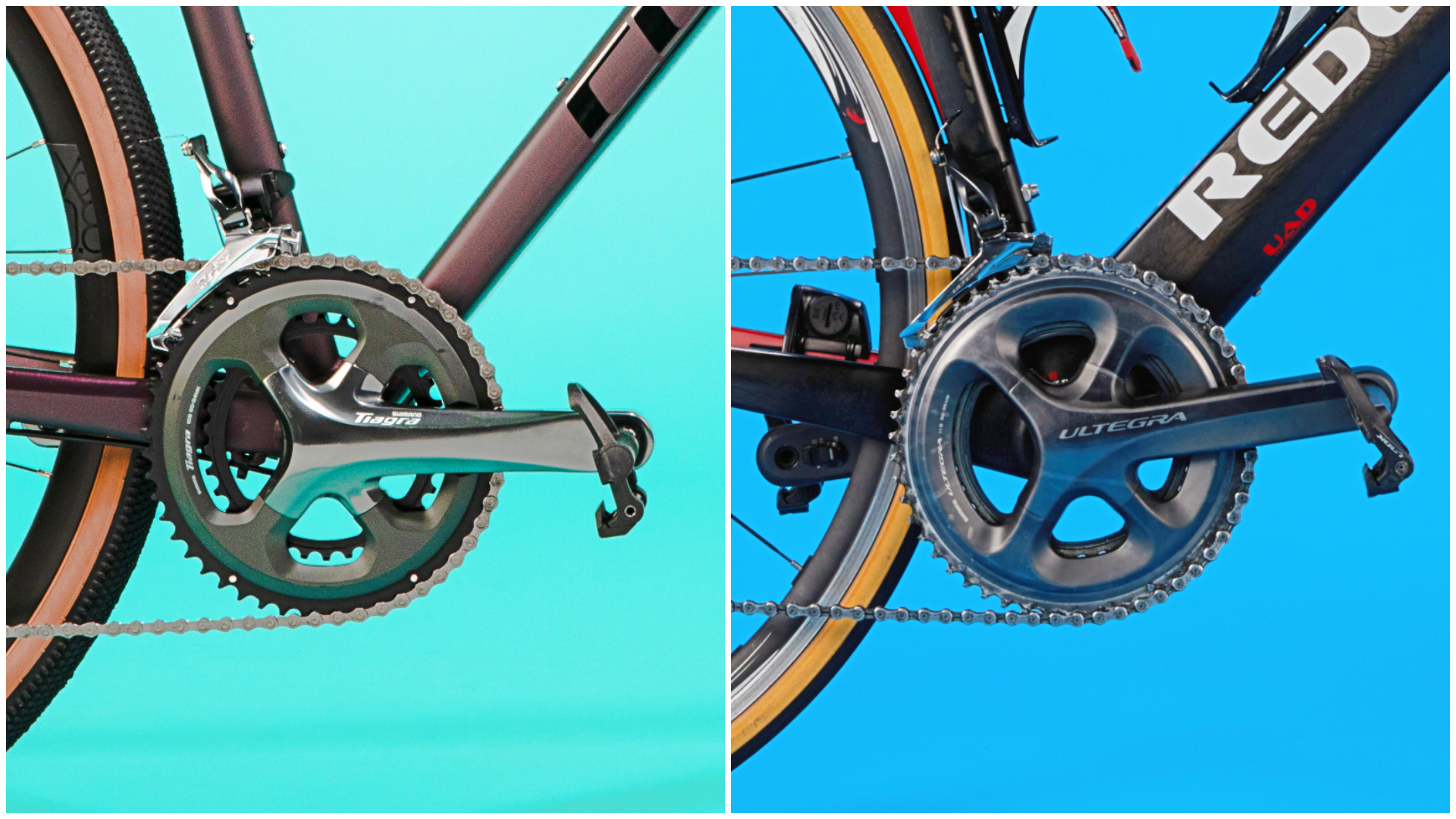
Top-end bikes have gotten just so expensive – does a model even count as 'flagship' these days if the price tag isn't running firmly into five figures?
But rather than lament the fact that Dura-Ace is slipping ever further out of reach – if it ever really was that close to begin with – since the release of R9200 12-speed, let’s instead take a look right at the other end of the scale. It's worth taking a moment to reflect on just how good the lower-tier road bike groupsets have become.
Although Shimano’s third tier 105 R7000 groupset often gets touted as ‘the people’s drivetrain’, it wasn’t so long ago (okay, 2009) that the ‘racer’s choice’ was spinning one sprocket fewer – in the guise of 6700 series 10-speed Ultegra.
Now, times have moved on and Shimano's current 10-speed offering has a much more 'budget' oriented focus in the shape of fourth tier Tiagra. But how do the two directly compare? Has 'trickle-down tech' made modern Tiagra not only cheaper, but better as well? Or was 6700 series Ultegra simply a better build and execution of a 10-speed groupset?
Well, I’m going to play this with my hand open. As you might already have sensed, I think that modern Tiagra 4700 does outperform – or at least match – old Ultegra (we're not comparing to the new, semi wired 12-speed iteration) in most ways. But there are a few caveats. Let's take a run through and see how the two groupsets stack up.
Shifters and shifting
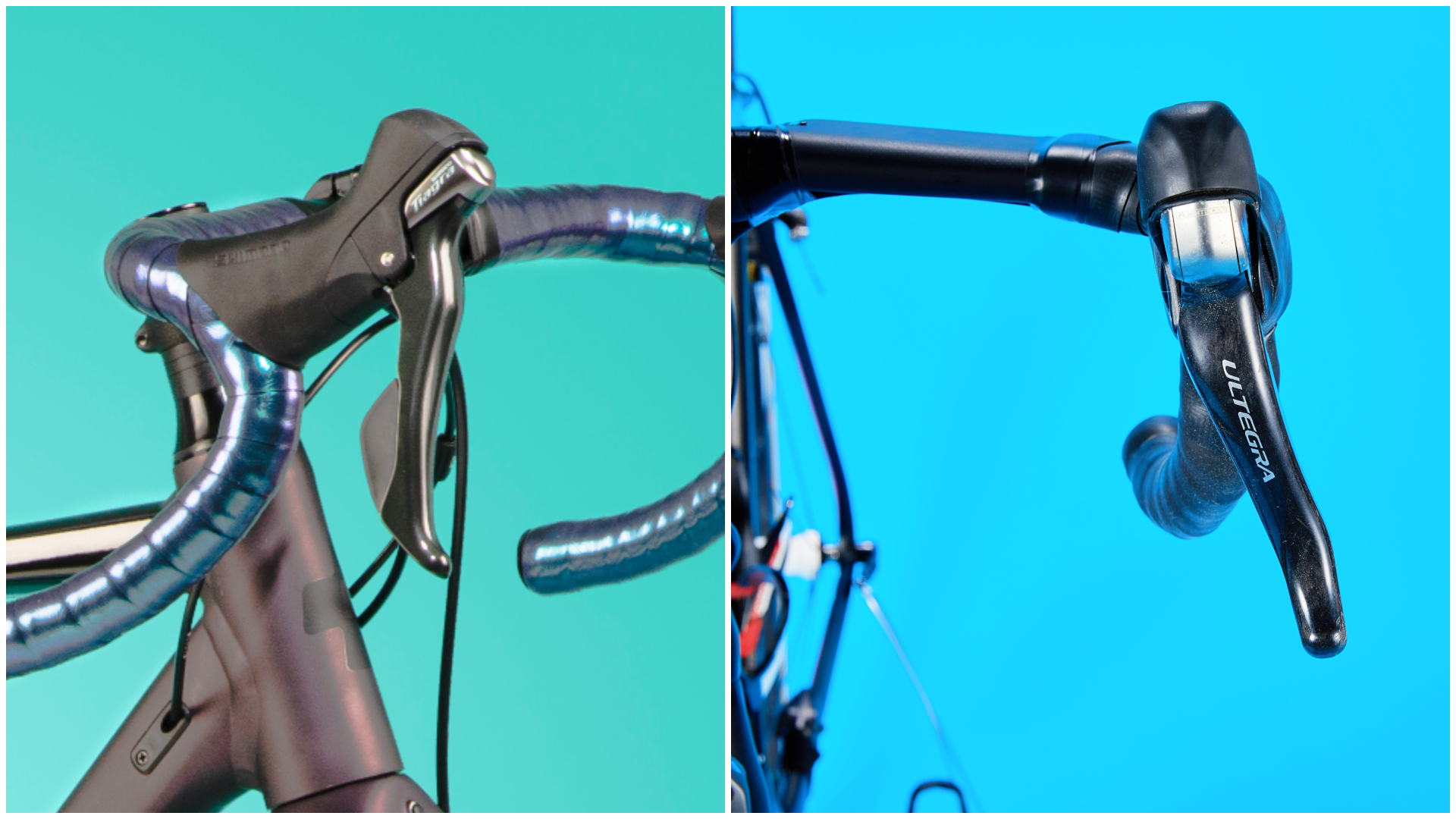
The shifters represent perhaps the greatest divergence between modern Tiagra (4700 series) and Ultegra 6700 – and it's the cheaper gruppo that comes out best.
A perennial issue of this generation of Ultegra is that the lever for shifting into smaller sprockets is itself just a bit too small (something the brand addressed with its latest launch). Often its not a issue, but when wearing bulky gloves or when reaching for that next gear in the heat of a sprint, it was always quite easy to fumble the shift. With Tiagra 4700, on the other hand, that lever grows in size and makes the shifts just that much easier.
The latest race content, interviews, features, reviews and expert buying guides, direct to your inbox!
Perhaps a more subjective are the ergonomics of the levers. Ultegra 6700 feels quite wide on the hoods where your palms tend to sit and the way the front of the lever rises up just doesn't 'lock you in' quite as well as on the more recent designs
Feeling relatively skinner and kicking up at just the right angle, the Tiagra 4700 levers give a greater feeling of security (at least for me) than those of Ultegra 6700.
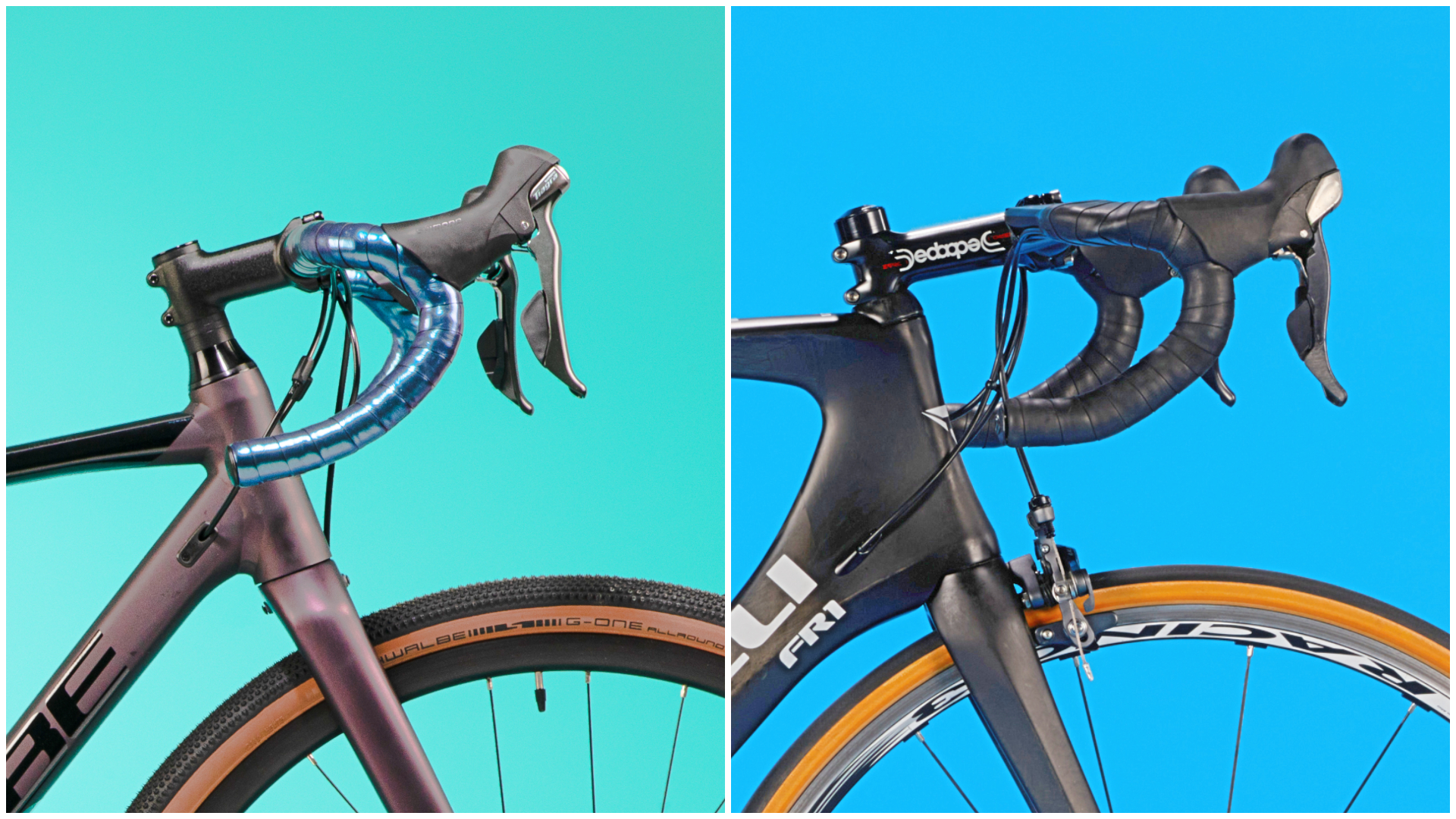
Coming now to the shifting action itself, again this is another area where modern Tiagra feels like a great improvement over old Ultegra. Particularly in the case of the front shifts – but also to some extent the rear shifts as well – the lever action feels significantly lighter and the shift a little faster and more secure.
And yes, this is comparing a recently recabled 6700 series groupset, not one that's seen a few winters with the same housing.
There is one aspect is this area where I think 10-speed Ultegra does have one over Tiagra 4700 and that's the construction of the rear derailleur. The 6700 rear mech has a stronger feeling spring and the construction feels that much more solid and robust than the Tiagra version, which feels a little spongey in comparison – although it does, together with the rest of the Tiagra components, still produce a smoother shift.
Braking
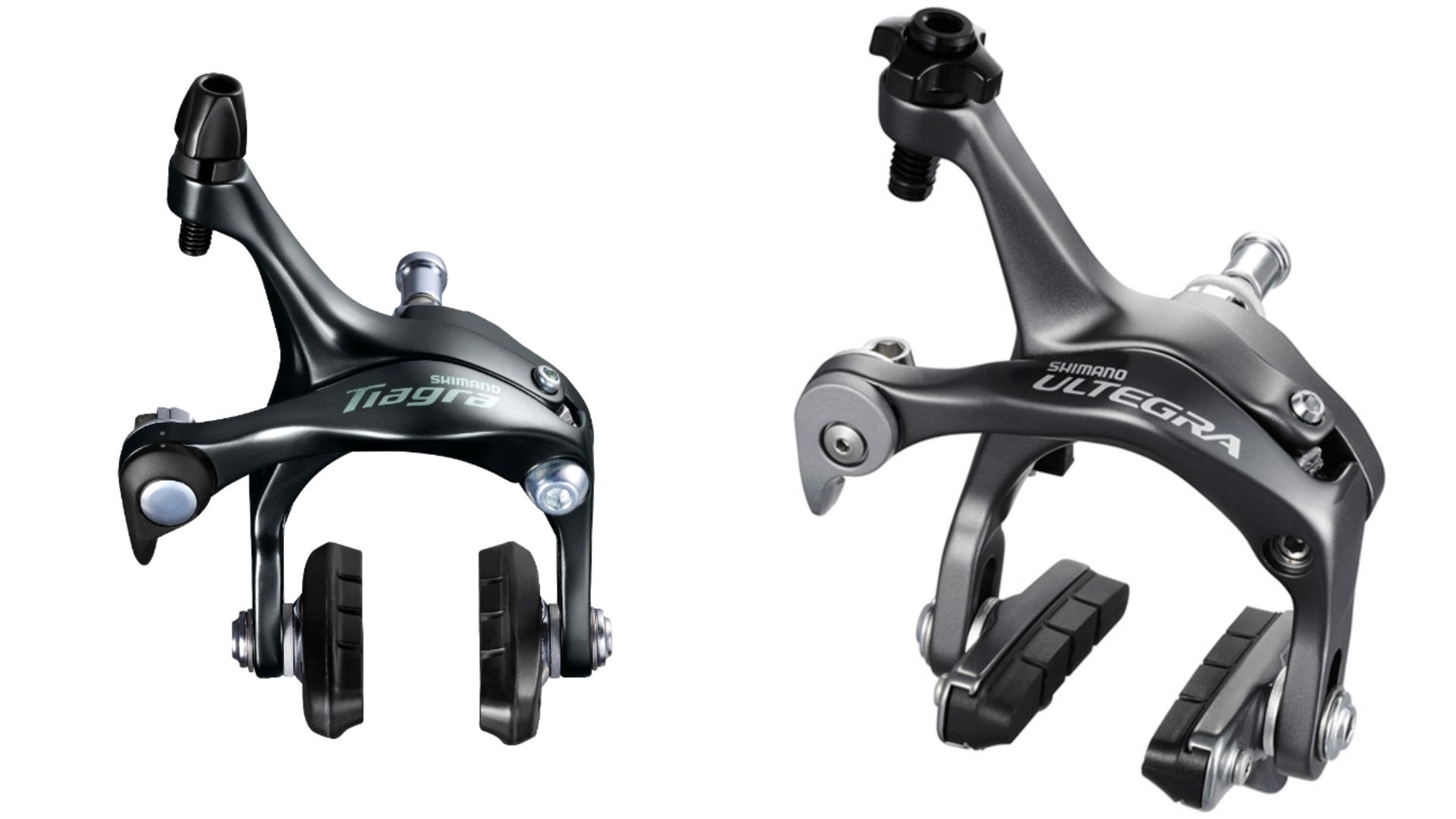
Here we start getting a little closer to apples and oranges territory: It’s pretty rare that you see a Tiagra rim brake build these days and there wasn’t a hydraulic disc brake version of 10-speed Ultegra.
But with that said, there is still enough crossover to draw out a few comparisons.
Taking the stock rim brake setups for each of the groupsets, Ultegra is the clear winner here. The compound of the pads and the presence of brake shoe gives a more positive braking feel with more power and greater control.
The basic one-piece brake blocks of the Tiagra stoppers result in quite a spongey and underpowered performance in comparison.
The flipside to this is that brake pads are a relatively inexpensive upgrade and, as a consumable, it’s a part you’re going to have to replace at some point. Putting some better pads on Tiagra calipers can transform the performance,
Still, the fact is that these days, you're most likely going to see Tiagra specced on a disc brake bike. The hydraulic braking version of Tiagra is excellent and delivers a huge amount of power along with great modulation, the mechanical discs require a bit of tinkering to get the best out of the system.
Gearing
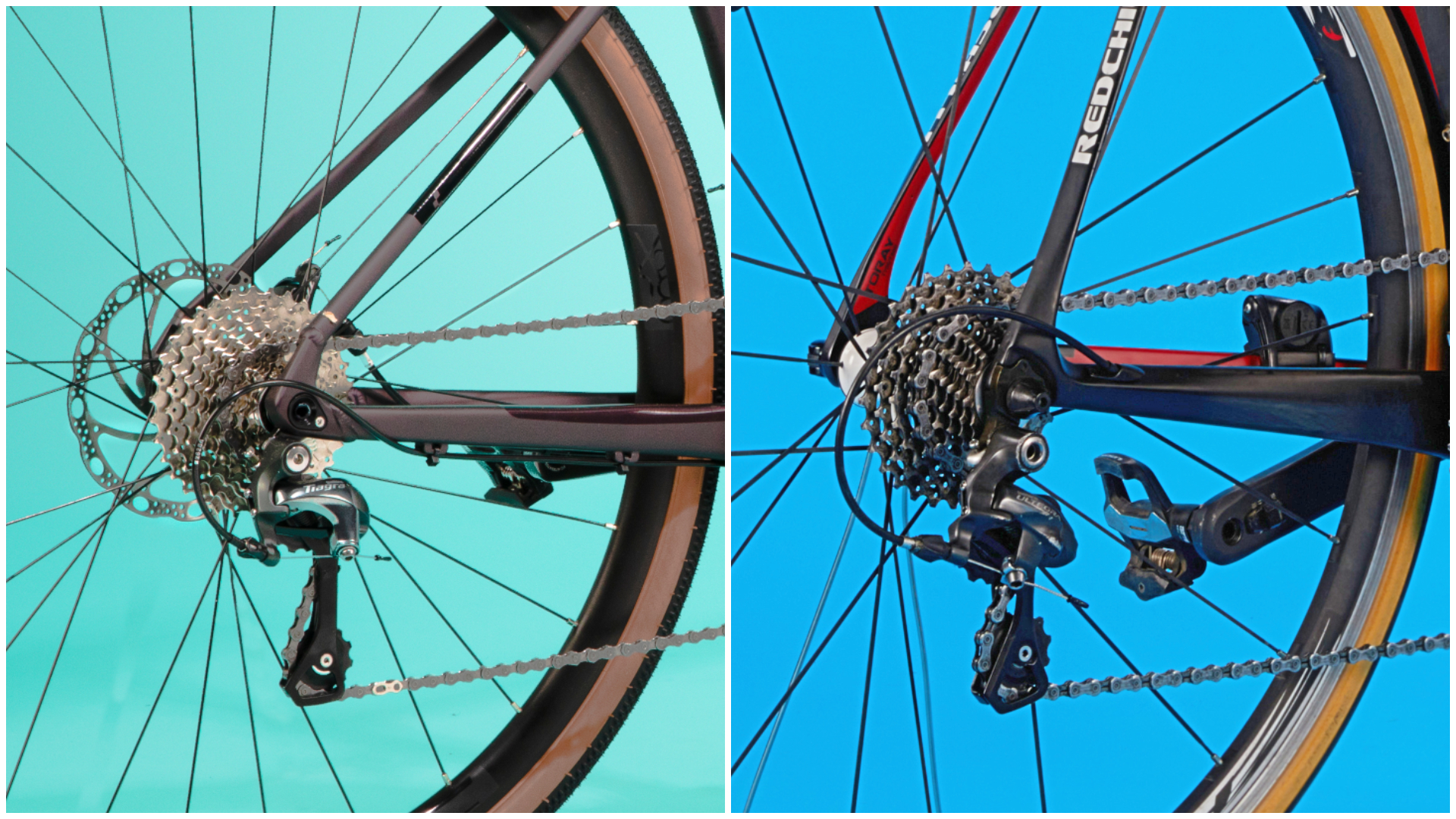
This is another area where the stock options from the Ultegra 6700 series are (were) quite a bit better than what you get with Tiagra 4700.
You had the 11–23t for flat riding/racing, with a 16t sprocket smoothing out the jump between the 15t and 17t sprockets. Some people don't mind that gap, but there are others who seem to always find themselves on the wrong side of it.
Then there was the 11–28t, which had the same number of single tooth jumps as an 11-speed 11–28t cassette, just with slightly larger jumps between easiest gears of the cassette. But as is commonly pointed out – bigger gaps at that end of the gearing range aren't so noticeable.
11–23t: 11-12-13-14-15-16-17-19-21-23
11–28t: 11-12-13-14-15-17-19-21-24-28
Sadly, modern Tiagra loses both those cassettes. Instead, these get replaced with an 11–25t cassette which doesn't have a 16t sprocket like the 11–23t and doesn't have the range of the 11–28t.
Alternatively, there is a 12-28t, which at least provides an easier bottom gear, but loses some of the top end and overall range compared to an 11-28t. The introduction of an 11–32t cassette is great for boosting the gearing range and a welcome introduction, but it still leaves quite a hole where the Ultegra cassettes once were.
11–25t: 11-12-13-14-15-17-19-21-23-25
12–28t: 12-13-14-15-17-19-21-23-25-28
11–32t: 11-12-14-16-18-20-22-25-28-32
The good news is you can still track down cassettes with the Ultegra ratios and fit them to a Tiagra specced bike. So, like with the brake pads, this isn't really a road block for Tiagra, but also it is worth noting.
Conclusion
In all, there are quite a few points where modern Tiagra 4700 series has an edge of 10-speed Ultegra 6700 series – namely, regarding the lever ergonomics and shifting performance.
There are some areas where Ultegra 6700 retains an edge over Tiagra 4700, the braking performance and gearing options being the main ones. But given that these parts are consumable and can easily be swapped in to a modern Tiagra system, I'm going to hand the win to Tiagra – and that's just considering the performance, not factoring in the (relative) price difference.
With Tiagra coming out top, that opens up a whole next set of questions: are we perhaps being spoilt by 105? Could Tiagra be all that's really needed in many cases? What about modern Sora? How does that compare to 9-speed Dura-Ace?
But let's save those for another time...
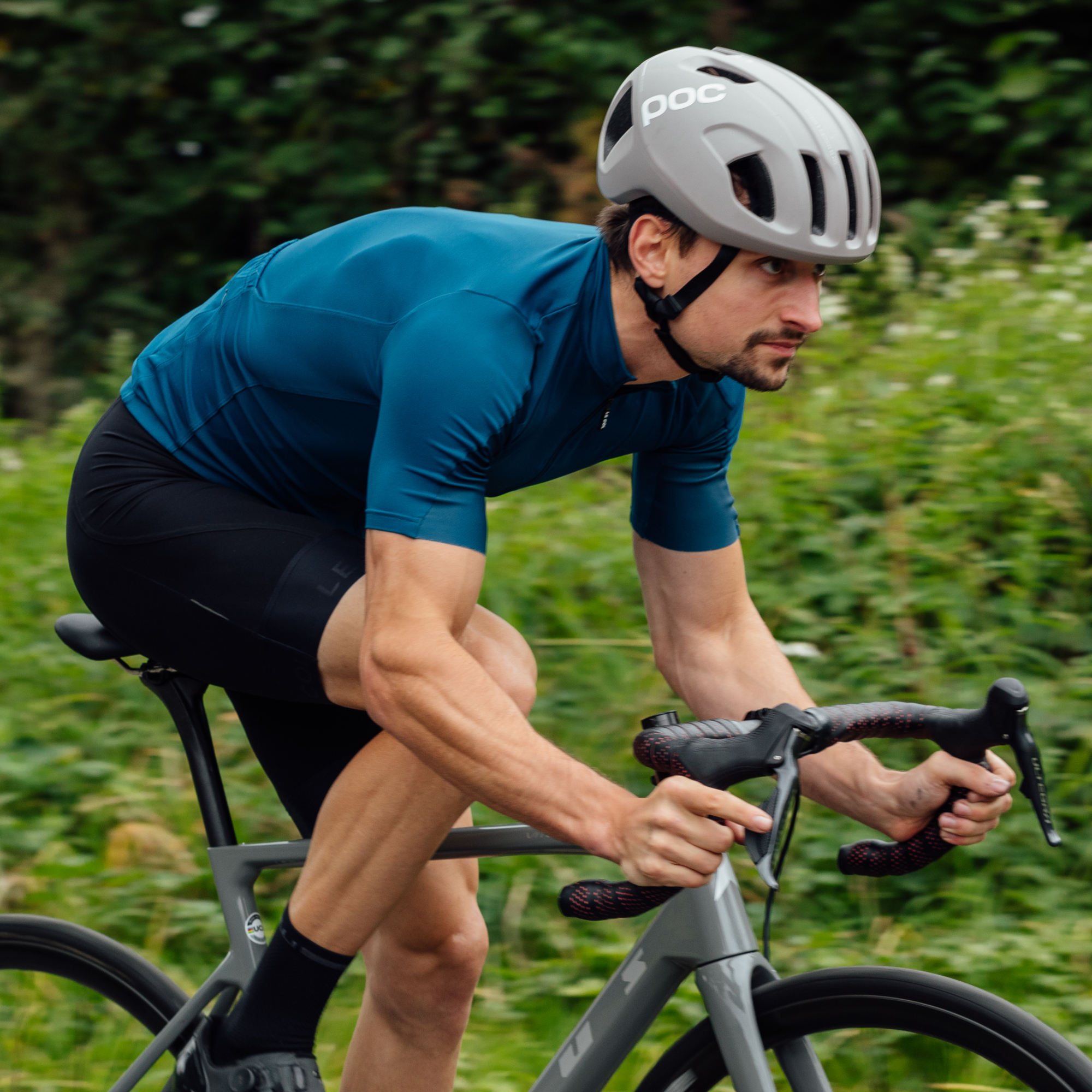
After winning the 2019 National Single-Speed Cross-Country Mountain Biking Championships and claiming the plushie unicorn (true story), Stefan swapped the flat-bars for drop-bars and has never looked back.
Since then, he’s earnt his 2ⁿᵈ cat racing licence in his first season racing as a third, completed the South Downs Double in under 20 hours and Everested in under 12.
But his favourite rides are multiday bikepacking trips, with all the huge amount of cycling tech and long days spent exploring new roads and trails - as well as histories and cultures. Most recently, he’s spent two weeks riding from Budapest into the mountains of Slovakia.
Height: 177cm
Weight: 67–69kg